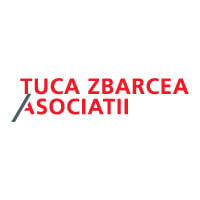

General counsel, Romania | Ritzio Entertainment Group



Nicolae Olariu-Barbu
General counsel, Romania | Ritzio Entertainment Group
How do you approach managing legal aspects during periods of instability or crises, and how does your legal strategy align with the broader business strategy to ensure the organisation’s resilience?
In recent years, the gambling industry has undeniably faced crises, with the most complex challenges arising from the pandemic and evolving regulatory pressures. During such periods, my approach centres around four key strategic actions.
Firstly, it’s crucial to identify all involved actors. A crisis often engages both private and public sector participants, and understanding the roles and responsibilities of governmental structures and private entities is vital in addressing the situation effectively.
Secondly, assessing risks and prioritising them is paramount. This involves evaluating the legal risks at hand and determining which issues demand immediate attention. Factors such as the short- and long-term business impact, reputational consequences, and the resources required to mitigate these risks play a central role in this process.
Thirdly, negotiation is a critical action. In my experience, private partners respond most positively to direct and transparent negotiation sessions, where each party has the opportunity to express their immediate concerns. This open dialogue enables all parties to navigate the complexities of the situation and increases the likelihood of achieving mutually beneficial outcomes.
Lastly, focusing on relevant information is key during a crisis. Crises often generate an overwhelming amount of information, and it’s important to filter out the noise and concentrate only on information that is both pertinent to the business and sourced from trustworthy outlets.
As for periods of instability, these have become the new norm within the gambling industry, largely due to frequent and often excessive legislative changes. In these times, we adopt a proactive approach by closely monitoring every legal project, assessing its potential impact, and evaluating the likelihood of its implementation.
Additionally, we stay vigilant by tracking case law involving our market regulator, comparing its practices with both current and potential future market trends. This enables us to remain informed about regulatory shifts and market dynamics. Once we have a clear understanding of the implications of new legal initiatives, we actively participate in debates and discussions organised by professional associations and other relevant entities.
What emerging technologies do you see as having the most significant impact on the legal profession in the near future, and how do you stay updated on these developments?
AI is set to play a significant role in transforming the legal profession in the coming years. One notable advancement is in automatic translation technology, which is expected to become highly accurate. I foresee a future where documents are translated almost instantly with minimal errors, and multi-language conferences will benefit from live translation and automated minutes, enhancing communication efficiency and accuracy.
AI will also have a profound impact on high-volume document analysis. It will excel in summarising documents and identifying specific clauses, saving legal professionals significant time and effort.
In the area of dispute resolution, certain types of litigation – such as debt recovery, administrative fines, or enforcement proceedings – are susceptible to standardisation. These cases could be processed by AI in the first court instance, based on a common set of documents submitted by the parties, streamlining the legal process.
Additionally, administrative procedures, such as the registration of various deeds, will likely be automated, with human intervention becoming more limited as AI systems take over routine tasks.
However, I believe that while AI offers substantial potential, its involvement in legal matters also raises significant risks. Therefore, we must approach its implementation with caution. One potential solution is to establish rules where AI’s decisions require human verification, ensuring that a human reviews and confirms the AI’s resolutions. Furthermore, any appeals should be handled exclusively by humans, without AI involvement, to preserve fairness and accountability in the legal system.
General counsel, Romania | Ritzio Entertainment Group